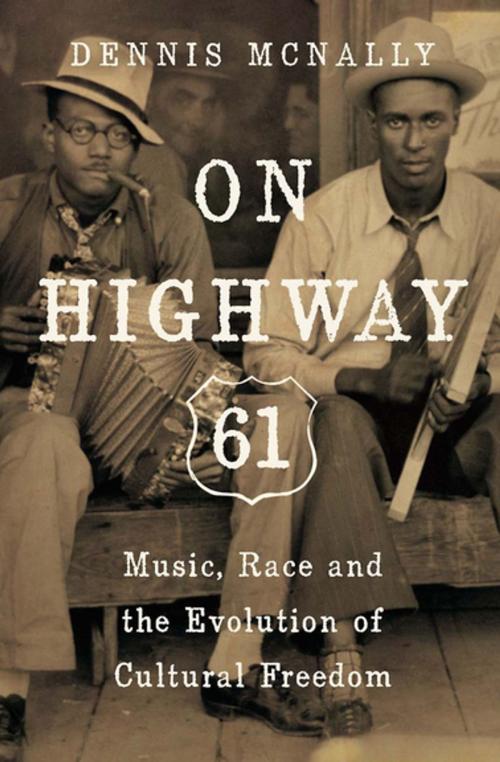On Highway 61
Music, Race and the Evolution of Cultural Freedom
Nonfiction, Entertainment, Music, Theory & Criticism, Ethnomusicology, Social & Cultural Studies, Social Science, Cultural Studies, Popular Culture, History, Military| Author: | Dennis McNally | ISBN: | 9781619024120 |
| Publisher: | Counterpoint Press | Publication: | September 22, 2014 |
| Imprint: | Counterpoint | Language: | English |
| Author: | Dennis McNally |
| ISBN: | 9781619024120 |
| Publisher: | Counterpoint Press |
| Publication: | September 22, 2014 |
| Imprint: | Counterpoint |
| Language: | English |
“An essential volume for music lovers.” —East Bay Times
On Highway 61 searches for the deeper roots of American cultural and musical evolution over the past 150 years—by studying what the Western European culture learned from African American culture in a historical progression that reaches from the minstrel era to Bob Dylan.
Starting out with nineteenth-century American thinkers such as social critic Henry David Thoreau and satirist Mark Twain, and moving through the decades, the book explores the changes and developments that would culminate in the revolutionary period of the 1960s. As the first post-Civil War generation of black Americans came of age, they introduced into the national culture a trio of musical forms—ragtime, blues, and jazz—that would, with their derivations, dominate popular music to this day. Early on, it would attract a cluster of young white musicians who came to be known as the Austin High Gang, who fell in love with black music and were inspired to play it themselves. In the process, they developed a liberating respect for the diversity of their city and country, and it was not long before these young white rebels were the masters of American pop music—big band swing. Even genres commonly thought of as “white” like rock ’n’ roll and country would come to reflect significant black influence. This biracial fusion achieved an apotheosis in the early work of Bob Dylan, born and raised at the northern end of the same Mississippi River and Highway 61 that had been the birthplace of much of the black music he would study.
This fascinating work shows how a society absorbed the culture of those at the absolute bottom of the power structure—the slaves and their descendants—and realized that they themselves were not free.
“This scholarly examination of the roots of American music and its cultural evolution encompasses ragtime, blues, jazz, folk, country, big band, swing and good ol’ rock ’n’ roll. At the party, we meet the key players of the day.” —The Sacramento Bee
“An essential volume for music lovers.” —East Bay Times
On Highway 61 searches for the deeper roots of American cultural and musical evolution over the past 150 years—by studying what the Western European culture learned from African American culture in a historical progression that reaches from the minstrel era to Bob Dylan.
Starting out with nineteenth-century American thinkers such as social critic Henry David Thoreau and satirist Mark Twain, and moving through the decades, the book explores the changes and developments that would culminate in the revolutionary period of the 1960s. As the first post-Civil War generation of black Americans came of age, they introduced into the national culture a trio of musical forms—ragtime, blues, and jazz—that would, with their derivations, dominate popular music to this day. Early on, it would attract a cluster of young white musicians who came to be known as the Austin High Gang, who fell in love with black music and were inspired to play it themselves. In the process, they developed a liberating respect for the diversity of their city and country, and it was not long before these young white rebels were the masters of American pop music—big band swing. Even genres commonly thought of as “white” like rock ’n’ roll and country would come to reflect significant black influence. This biracial fusion achieved an apotheosis in the early work of Bob Dylan, born and raised at the northern end of the same Mississippi River and Highway 61 that had been the birthplace of much of the black music he would study.
This fascinating work shows how a society absorbed the culture of those at the absolute bottom of the power structure—the slaves and their descendants—and realized that they themselves were not free.
“This scholarly examination of the roots of American music and its cultural evolution encompasses ragtime, blues, jazz, folk, country, big band, swing and good ol’ rock ’n’ roll. At the party, we meet the key players of the day.” —The Sacramento Bee















